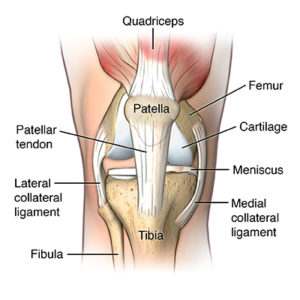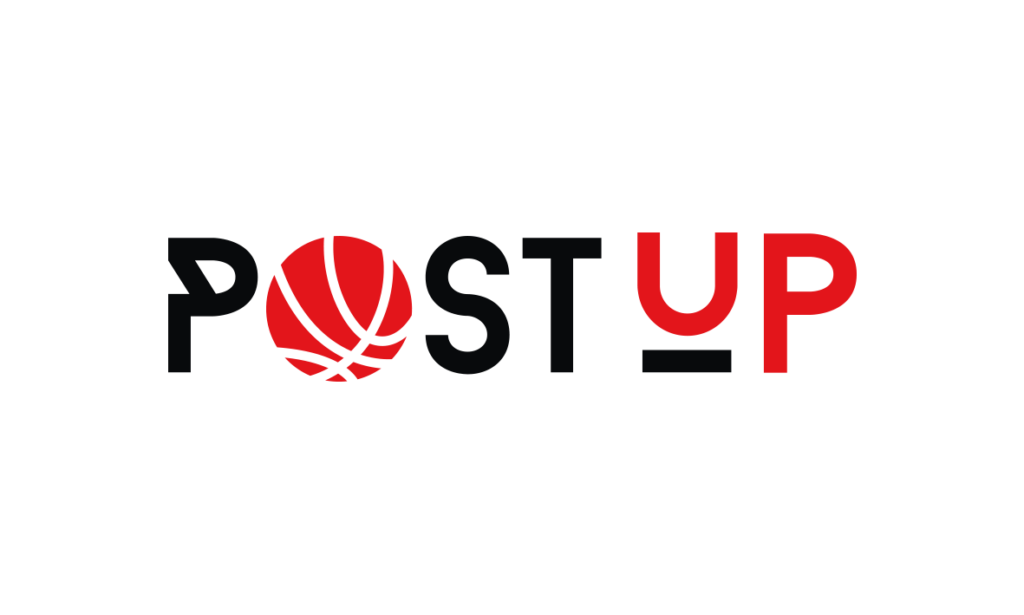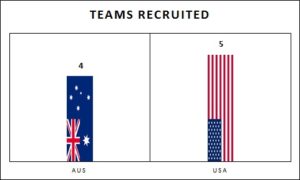Prevention Of Symptoms in Tendinopathy and Understanding Pathology
What is patellar tendinopathy?

Patellar tendinopathy (often called jumper’s knee) is a clinical diagnosis of pain and dysfunction in the patellar tendon (see image). The patellar tendon attaches the bottom of the knee cap to the top of the shin bone and acts like a spring when you jump.
Many basketball players have pain at the front of their knee (jumper’s knee). It affects their ability to train and perform, as well as decreasing their ability to jump and change direction. Most of these athletes continue to train and play while having this condition, only severe cases resulting in missed games. For example, only 0.7% of missed games in the NBA are due to jumper’s knee yet ~20-30% of basketball players report pain. A better measure of how jumper’s knee impacts players is essential to be able to treat it effectively.
What does the study involve?
Recently our research group, led by Prof Jill Cook who has worked as a physio with NBL, WNBL and Australian national teams, received funding from GE Healthcare and the NBA to investigate patellar tendinopathy in basketball.
Information will be collected in teams over the course of a season. Players will be asked to complete a short 1 minute multiple-choice questionnaire about any problems they have had with their patellar tendon. This asks about the severity of their symptoms and how it is affecting their ability to participate and perform in training and games.
Players will also be invited to undertake an ultrasound scan of their patellar tendons. This scan does not use any radiation. Findings from this will see if we can identify at-risk athletes and potentially pre-intervene.
Possible Benefits
This study will look at the impact of patellar tendinopathy in basketball. The study will investigate the impact of pain on athletes over a season. In addition, the study will also investigate if imaging, specifically UTC can identify athletes that are at risk of patellar tendon pain.
The study will develop an injury monitoring tool to record how different injuries impact players’ performance, rather the solely measuring whether players missed games due to tendon injury. This project will also identify risk factors for tendon injuries. Identification of these risk factors will help development of injury prevention strategies to reduce the burden of these injuries in basketball.
AUS VS USA
Meet our team
Professor Jill Cook
Prof Jill Cook is a professor in musculoskeletal health in the La Trobe Sport and Exercise Medicine Research Centre at La Trobe University. Jill’s research areas include sports medicine and tendon injury. Jill has worked extensively as a physiotherapist with NBL, WNBL and Australian national teams.
Jill has vast experience in tendinopathy research and clinical aspects of the condition. In addition to her overall contribution to tendon research, Jill is an author on two critical papers on tendinopathy, the first the development of an outcome measure for patellar tendinopathy (the VISA scale) that has been translated into more than 10 languages and is considered the best outcome measure for patellar tendinopathy. The continuum model of tendon pathology is accepted as the leading model that links pathology to clinical presentation. In addition Jill is the deputy director of the Australian Centre for Research in Injury in Sport and its Prevention, funded by the International Olympic Committee since 2009.
Dr Sean Docking
Dr Sean Docking is a clinical sports medicine researcher with a special interest in tendinopathy and clinical musculoskeletal imaging. Sean’s primary research interests focus on understanding the clinical utility of imaging in lower limb tendinopathy, specifically with ultrasound tissue characterisation (UTC). Sean is also interested in developing injury prevention protocols in elite athletes to better quantify the morbidity associated with tendinopathy and understanding the effect of load on tendon structure.
In addition, Sean is also an adjunct research fellow and part of the Australian Centre for Research into Injury in Sport and its Prevention. Sean is currently completing a similar study in elite Australian rules football players. The preliminary findings from this research has informed the direction of this current grant.
Dr Ebonie Rio
Dr Ebonie Rio is a Sports Physiotherapist that treats elite athletes as well as an active researcher completing postdoctoral research in tendinopathy. Ebonie has completed her PhD in tendon pain and conducted the first studies in the world that have demonstrated exercises that may be used to reduce tendon pain immediately. In addition, Ebonie is an adjunct research fellow and part of the Australian Centre for Research into Injury in Sport and its Prevention.
Ebonie was also part of the team that has conducted the only in-season exercise intervention in tendinopathy that has demonstrated a positive result. Ebonie continues to work with elite athletes and this drives her research to be clinically relevant.
Dr Suzi Edwards
Dr Edwards is a senior lecturer at the University of Newcastle. Suzi has completed extensive research into the biomechanics of sporting injuries, particularly in patellar tendinopathy.
Suzi’s past and current research investigates what critical biomechanical factors predispose athletes to overuse injuries and affect their sporting performance. Suzi’s patellar tendinopathy research is the first research internationally to identify that asymptomatic patellar tendon abnormality (PTA) displayed a different landing technique compared to athletes with a normal tendon.
Dr. Darin Padua
Dr. Darin Padua is a Professor and Chair of the Department of Exercise and Sport Science and Director of the Sports Medicine Research Laboratory at University of North Carolina at Chapel Hill (USA). Darin is a biomechanist and certified athletic trainer with expertise in the prevention and management of musculoskeletal injuries, with an emphasis on acute and chronic knee injuries. Darin’s primary research interests focus on identifying risk factors associated with knee injury and developing evidence based prevention strategies.
Dr. David Berkoff MD
Dr. Berkoff is an Associate Professor of Orthopaedics and fellowship-trained primary care sports medicine physician at the University of North Carolina at Chapel Hill (USA). Dr. Berkoff’s primary clinical and research interest is in tendinopathy, specifically in innovative, non-operative treatment techniques and musculoskeletal ultrasound applications to promote healthy, active lifestyles for his patients and in the community.
Aliza Rudavsky
Aliza is an orthopaedic physiotherapist and is currently completing her Phd. Her research revolves around patellar tendon development, utilizing the UTC (ultrasound tissue characterization) to quantify subtle changes in tissue structure during puberty. Aliza’s research aims to identify when patellar tendon abnormalities develop in young jumping athletes. These abnormalities can set those players up for developing tendinopathy in adulthood.
Madeline Hannington
Madeline is a physiotherapist commencing her Phd on this project at Latrobe University (AUS) . Madeline currently works in musculoskeletal and sports physiotherapy. Madeline was recently part of the medical team that worked with the first ‘NBA without borders’ held in Melbourne, Australia and has an interest in injury prevention in athletes.
Laura Stanley
Laura is a physiotherapist currently completing her PhD at the University of North Carolina at Chapel Hill (USA). Laura earned her specialist certification in (SCS) and has six years of clinical experience with a particular focus on knee injury rehabilitation. Her research interests focus on understanding the role of training load and biomechanics in the prevention and treatment of knee injury, and improving the effectiveness of rehabilitation to maximize long-term knee health.
Want to get involved?
We are looking to recruit top level basketball teams to participate in this study. By participating in this study you will have the opportunity to work with world leading experts in tendinopathy and also have access to new tendon imaging technology.
If you are interested please contact Professor Jill Cook
Email: J.Cook@latrobe.edu.au


